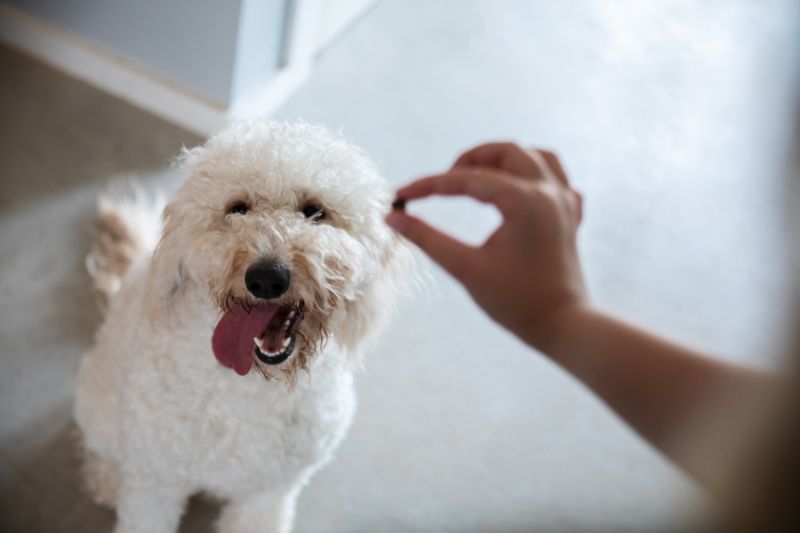
There’s nothing like bringing home a new pet! Not only are you welcoming a new family member and best friend into your home, but you’re also getting the chance to watch them grow and thrive under your care.
Of course, adopting a pet isn’t all fun and games. The serious work of training them and acclimating them to life in human society begins right away. Training your new pet is an incredibly important aspect of their care, and if done right will result in a confident, happy pet.
Prepare, Prepare, Prepare
Set yourself up for success by having everything you need for training your new pet before you bring them home. For instance:
- If you plan on crate training your dog, have an appropriately sized crate ready (large enough for them to comfortably turn around in).
- Cats need one litter box per cat, plus one extra, and boxes should be available on all floors of your home
- Have a plan in place for where you want your puppy to urinate/defecate, and make sure everyone in the house is on board.
- Pet-proof your home before your new pet arrives. Block off any areas you don’t want your pet to have access to, tape electrical cords to the floor or wall, and remove anything breakable or dangerous.
Training Your New Pet
Many, many books have been written on this subject, and there is indeed much to know. However, when it comes to training your new pet, we recommend you start with the basics and build from there.
House training – House training should begin the moment your new pet arrives home. Puppies will need to be taken outdoors immediately after eating or drinking and every few hours throughout the day (and night for very young pups). Adult cats will probably not need any encouragement to use a litter box, but kittens may need to be shown. Reward proper elimination with lots of praise.
Commands – Teaching your new dog basic commands will make life easier for everyone. “Sit”, “Stay”, and “Come” are essential for preventing bad behaviors such as jumping, and keeping them respectful and safe. These commands are also a gateway to learning other skills. Kittens should not be allowed to attack human hands or fingers, as this behavior is likely to continue into adulthood (where it’s not so cute!).
Crate training – Teaching your puppy to feel comfortable in a crate or pen will help keep them safe and out of trouble when you’re out of the house. Fill the crate with comfy bedding and a safe toy or two, and get them used to it slowly by leaving them in for short periods of time while you step out of the room. Gradually increase the time they are in the crate.
Socialization – Socializing your pet is one of the most important aspects of their care. A properly socialized pet is less of a danger to themselves and others and is happier overall. As soon as your puppy is vaccinated, expose them to as many people, places, and animals as possible to ensure they are comfortable in a wide range of situations.
Please let the team at True Care Veterinary Hospital know if you have any questions, and be sure to schedule an appointment with us as soon as your pet arrives home. We can’t wait to meet your newest addition!

